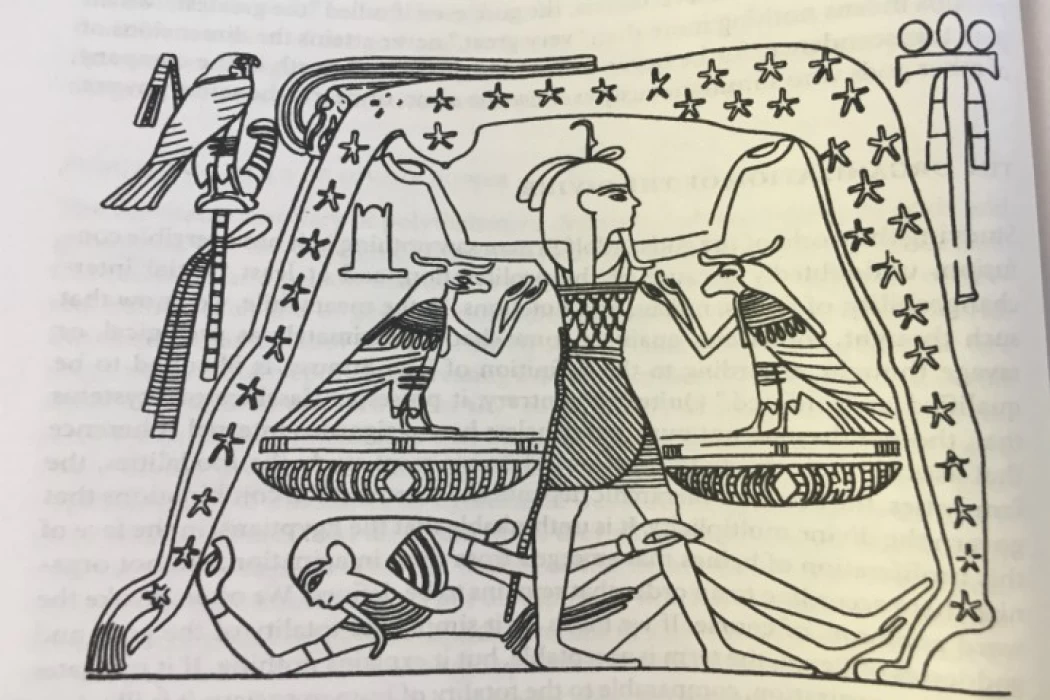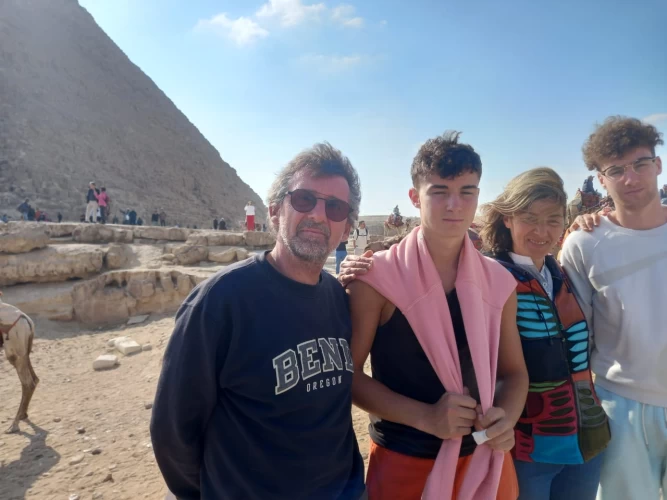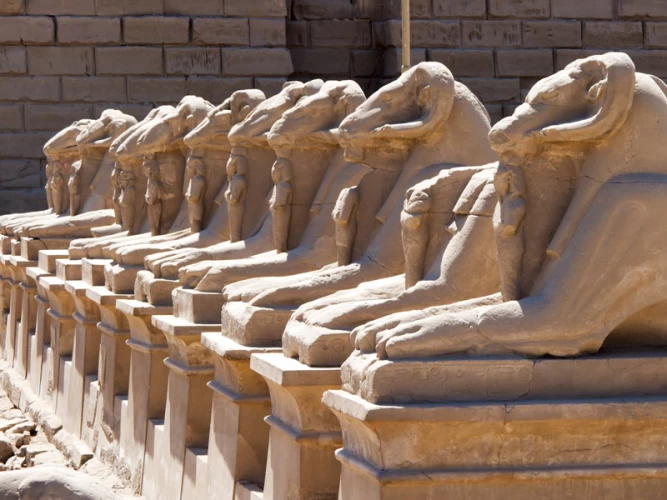
Deus Shu | Deus egípcio do ar
Deus Shu
Deus Shu nasceu com a sua irmã gémea Tefnut, deusa da humidade, que ele tomou como sua esposa, dessa união nasceu Nut, a deusa do céu, que representava o céu cheio de estrelas e Geb que simbolizava a terra.
Deus egípcio do ar
Esta divindade foi representada como um homem com uma coroa que tinha uma pena de avestruz, numa das suas mãos trazia um ceptro, também pode ser encontrada com um joelho apoiado sobre a terra porque assim segurava o céu com as mãos; nos seus quatro pontos cardeais, que eram chamados os pilares de Shu.
Noutras imagens do deus Shu ele é visto a emergir atrás da terra, segurando um disco solar sobre a sua cabeça, e com as suas mãos segurando as bases do disco, ele também apareceu sob a forma de um leão, esta foi a sua manifestação mais sagrada.
Este deus do ar e da luz foi responsável pela maioria dos fenómenos meteorológicos, ele representava os raios que vinham do deus Ra, juntamente com o calor ardente do Verão e o ar seco, para além do vento frio do norte.
A sua principal ocupação era manter o céu afastado quem era Noz e a terra representada por Geb, a fim de evitar o caos no universo, isto foi registado no Livro dos Mortos, deixando Hermopolis como o lugar onde Shu tinha levantado o céu.
Gostaria de viver uma viagem através da cultura e mitologia egípcia antiga? pode fazê-lo acontecer e passar um dia a visitar Abydos, Giza, Luxor, Assuão para ver os túmulos dos Faraós adornados com cenas muito claras, detalhadas e belamente pintadas das várias divindades do antigo Egipto, bem como muitos outros locais, cidades, aventuras e coisas para fazer no Cairo, pode tentar reservar um dos nossos pacotes de viagens ao Egito e muitos grupos privados de excursões guiadas de um dia no Cairo a partir do aeroporto e de um dia no Egipto para explorar a capital do Egipto, Cairo pode verificar muitos dos itinerários do Egipto ou fazer uma das nossas excursões de um dia inteiro no Cairo, como por exemplo: .
God Shu was born with his twin sister Tefnut, goddess of humidity, whom he took as his wife, from that union, Nut, the Goddess of the sky, was born, who represented the sky full of stars, and Geb that symbolized the earth.
This deity was represented as a man wearing a crown with an ostrich feather. In one of his hands, he carried a scepter; he could also be found with a knee resting on the earth, as that way he held heaven in his hands, encompassing its four cardinal points, which were called the pillars of Shu.
In other images of the god Shu, he is seen emerging behind the earth, holding a solar disk over his head, and with his hands holding the bases of the disk, he also appeared in the form of a lion; this was his most sacred manifestation.
This god of air and light was responsible for most of the meteorological phenomena, he represented the rays that came from the god Ra, along with the burning heat of summer and the dry air, in addition to the cold north wind.
Its main occupation was to keep the sky apart which was Nut and the earth represented by Geb, in order to prevent chaos in the universe, this was recorded in the Book of the Dead, leaving Hermopolis as the place where Shu had raised the sky.
The meaning of his name is not entirely clear, but it could be read as follows: ‘He who rises up.’ It might have come from a word that means "to be empty." Shu is typically portrayed as a man holding a feather, which is the hieroglyphic symbol for his name... He also belongs to Heliopolis' assembly of gods, where Shu and his sister Tefnut were the first to create the universe. The two emerged from the primordial god Atum, who possessed both male and female characteristics. According to one version of the Heliopolis creation myth, Shu came from Atum's exhalation.
The goddess Tefnut is the spouse of the god Shu. Shu, the god of air, and his sister and wife Tefnut, the goddess of water, are known to have mated to create the god of earth and the goddess of sky... The four of them represent the main elements of life, which are ‘earth, air, sky, and water.’ The ancient Egyptians believed that without water, the earth would dry up and be scorched by the sun's heat.
It was a centre of worship and a temple of the gods Tefnut and Shu in the city of Lyontopolis in the Egyptian Delta. The pharaoh and priests would purify themselves by tossing a stone into a deep pool before entering the temple to start the religious rites. Ordinary Egyptians were allowed to come to the doors or the front of the temple courtyard to receive blessings and offer gifts.
















